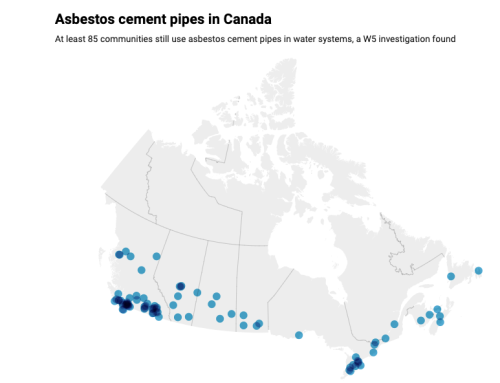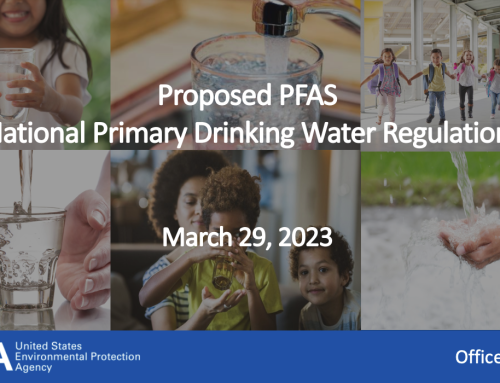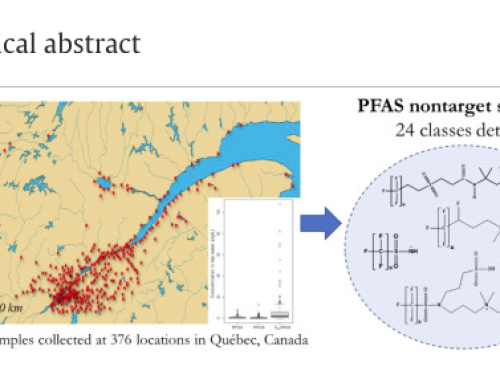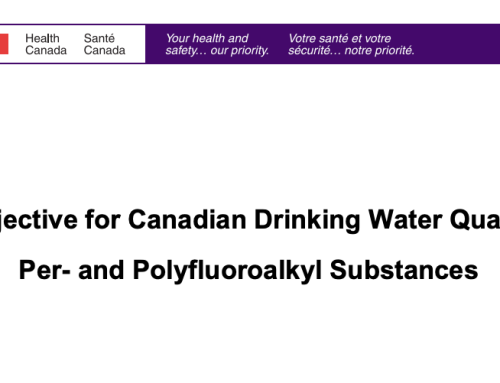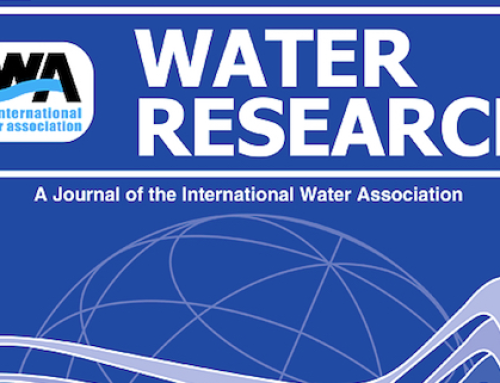Hi all…Information on drinking water quality issues in First Nation Communities in the refereed literature is very sparse. An accepted manuscript has just appeared in the journal ‘Applied and Environmental Microbiology’ documenting some testing in one such community. What I found interesting is that while water leaving the treatment plant was free of total coliforms and E. coli, tap water sampled in 3 of 4 homes contained both of these indicators of water quality. Another important finding was the identification of antibiotic resistant genes in such a remote community. This work demonstrates that despite advances in drinking water treatment in remote locations there are substantial water handling/delivery issues that continue to be unresolved.
Site description “The community has a water treatment plant, and just over 300 homes in the community are served by piped tap water. The majority of the houses that do not have piped tap water from the water treatment plant get their water delivered by a water truck, which fills up at the water treatment plant. Water is stored in underground cisterns. Families in homes without running water use small plastic buckets to obtain their drinking water from a community standpipe after which the water is stored (often in open buckets lined with a garbage bag) in the home…In addition, families sometimes utilize lake water as drinking water, or collect rain water for general washing and cleaning purposes.”
Bill
___________________________________________
Detection of Antibiotic Resistance Genes in Source and Drinking Water Samples from a First Nation Community in Canada
Appl. Environ. Microbiol. doi:10.1128/AEM.00798-16 Manuscript Posted Online 27 May 2016
D.M. Fernando, H.M. Tun, J. Poole, R. Patidar, R. Li, R. Mi, G.E.A. Amarawansha, W.G.D. Fernando, Eh. Khafipour, A. Farenhorst, A. Kumar
http://aem.asm.org/content/early/2016/05/23/AEM.00798-16.abstract
ABSTRACT “Access to safe drinking water is now recognized as a human right by the United Nations. In developed countries like Canada, access to clean water is generally not a matter of concern. However, one in every five First Nations reserves are under a Drinking Water Advisory, often due to unacceptable microbiological quality. In this study, we analyzed source and potable water from a First Nation community for the presence of coliforms as well as various antibiotic resistance genes. Samples, including from drinking water sources, were found to be positive for various antibiotic resistance genes, namely, ampC, tetA, mecA, β-lactamase (SHV-type, TEM-type, CTX-M-type, OXA-1, and CMY-2-type), and carbapenemase (KPC, IMP, VIM, NDM, GES, and OXA-48). Not surprisingly, substantial numbers of total coliforms including E. coli were recovered from these samples, which was also confirmed using Illumina sequencing of 16S rRNA gene. These findings deserve further attention as the presence of coliforms and antibiotic resistance genes potentially puts the health of the community members at risk.”
IMPORTANCE “In this study, we highlight the poor microbiological quality of drinking water in a First Nation community in Canada. We examined the coliform load as well as the presence of antibiotic resistance genes in these samples. To our knowledge, this is the first study that examines the presence of antibiotic resistant genes in drinking water samples from a First Nation Community in Canada. We believe that our findings are of considerable significance since the issue of poor water quality in First Nation communities in Canada is often ignored and our findings will help shed some light on this important issue.”

